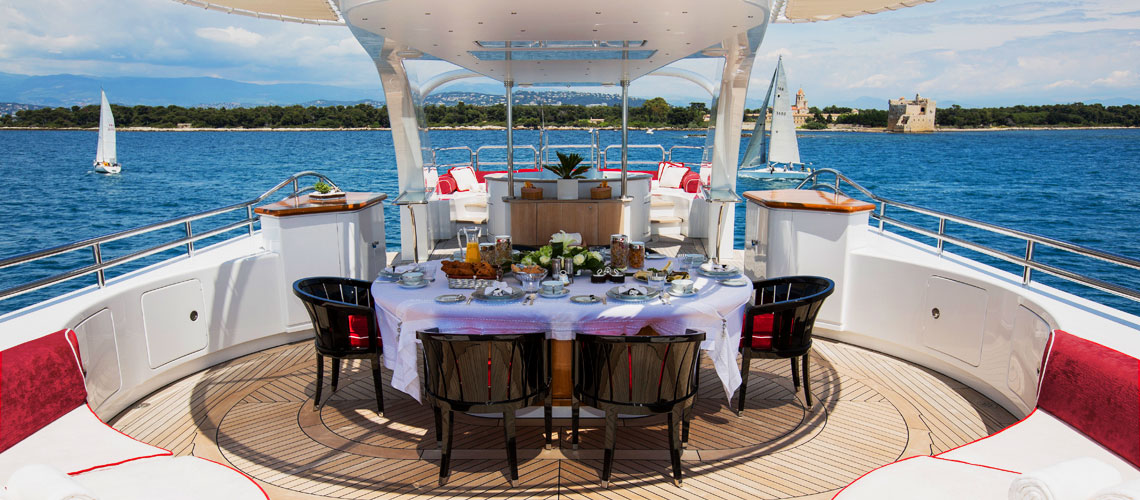
Published in "Essential Magazine", January 2014
So You Want to Build a Yacht?
Interview with Alexandra Verges, published in "Essential Magazine"
As an expert in international maritime law and international tax law, Alexandra Verges has built up a great deal of expertise in the highly specialised field of maritime consulting and international tax planning. In practise, this means she consults with clients on every aspect of buying, building, owning, chartering, managing and selling boats.
"If you commission a new vessel to be built to your requirements, you need to ensure the design, price and quality of construction are right, so it is important to find a good naval architect and shipyard, and to appoint the right people to manage the whole project"
"There is much more to owning a yacht than meets the eye," says Alexandra. "If you commission a new vessel to be built to your requirements, you need to ensure the design, price and quality of construction are right, so it is important to find a good naval architect and shipyard, and to appoint the right people to manage the whole project".
"If you decide to build or buy a yacht, there are tax and registration issues to bear in mind, as well as the yacht’s maintenance and crew. In short, it is an exciting and specialised field in which no two cases are exactly the same.
To give an indication of what is involved in commissioning a yacht from a shipyard and how important it is to carefully manage the process from beginning to end, we cite an example from one of Alexandra’s clients
"We received a request to take over the management of a yacht in the process of construction. It was quite an unusual request for us, as we usually advise our clients from the outset, helping them to select the shipyard and naval architect. In this case, construction was already underway but the owners felt the project had gone astray."
"We asked for the Shipbuilding Agreement and Appendices, the GAP (General Arrangement Plan) and technical specifications made by the naval architect. After a review of these documents and having checked the yard’s financial statements, we concluded that our client’s interests were not being protected:
- The contract had been drafted to the benefit of the yard and mentioned, for example, that instalments had to be paid every month, regardless of progress.
- Most of the Publications of the specifications were incomplete, and although the yacht was under construction there were no plans.
- What’s more, a look into the yard’s financial status revealed that it had been bankrupt for two years!"
The Classification Society
sets standards of quality and reliability for the design, building and functioning of vessels. A vessel’s hull and machinery must comply with the standards and are inspected to ensure they do.
The MCA
(Maritime and Coastguard Agency) is responsible for implementing the maritime safety policy of the government throughout the UK. This includes coordinating search and rescue at sea through Her Majesty’s Coastguard and checking that ships meet UK and international safety and anti-pollution regulations.
"We advised our client to transfer the work to a reputable shipyard that we could vouch for, and the completed sections of the boat were moved there and construction began in earnest.
In the meantime, we set up a company for yacht ownership and registered it for VAT. Certain items had yet to be finalised, such as the noise levels, the delivery date, the drafting of the bank guarantees and the final price.
"We arranged for the owner’s representative (usually the future captain) to be on-site, so he could ensure building proceeded according to schedule and withheld legal and technical documents agreed.
This was the build-up to the sea and dock trials, which are final proof of the yacht’s proper functioning, according to the sea/dock trial protocol.
Periodic instalments were made upon receipt of a certificate of construction progress issued by the yard and countersigned by the owner’s representative."
"Although the actual building was now tightly controlled, there were still many matters that needed organising, including:
- Yacht registration: the motor yacht under construction was over 24 metres and the client wanted to use her for chartering, so we registered her in Douglas, Isle of Man as a "commercial yacht". This meant that the vessel and crew had to comply with the regulations of the MCA Large Commercial Yacht Code (LY3).
- Application for a ship radio licence; all marine radio equipment aboard the vessel must be registered.
- Negotiation of yacht and crew insurances.
- Recruitment of deck officers and crew and drafting of their contracts.
- Conclusion of charter party agreements for the summer and winter seasons."
"Upon delivery and acceptance of the yacht, and after a joint survey checking that she conformed with all documents signed, the yard provided us with the builder’s certificate, the Classification Society certificate of conformity, the declaration of warranty stating that the yacht was delivered free of all liens and encumbrances, and the commercial invoice of the vessel.
Finally, with the signing of the Protocol of Delivery and Acceptance, the yacht was cast off and the owner’s dream had become a reality.
Had he not sought competent and reliable specialised assistance when he did,
his dream might well have become a costly nightmare."
